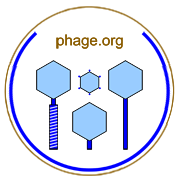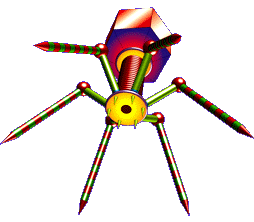

Phage-mediated movement of bacterial DNA between bacteria.
Typically transduction is differentiated into generalized versus specialized forms. These differ in their mechanisms of bacterial DNA acquisition. They additionally differ in terms of whether there is complete versus onl partial replacement of capsid-packaged phage DNA, respectively.
Moron acquisition and then movement between bacteria may be included among forms of transduction. In fact this form of DNA movement between bacteria can be viewed as a form of specialized transduction, though only with this latter term defined more generally than is often the case. That is, morons, as additional DNA that has become integrated into a phage genome, satisfies the criteria of only partial replacement of otherwise capsid-packaged phage DNA.
Not all phages are able to transduce bacterial DNA. Non-temperate phages, for example, do not display specialized transduction (or, at least, that associated with bacterial DNA acquisition during prophage excision).
Another example is seen with highly virulent, non-temperate phages, which tend to not display generalized transduction. In this case, this is due to a tendency by these phages to destroy the genome of their bacterial hosts, a.k.a., host-genome degradation, and to do so early in the course of infection (e.g., phage T4). As a consequence, significant quantities of intact bacterial DNA simply is no longer present within the cell to be inadvertently packed into phage virions once virion maturation has commenced.
For more on this topic, see Wikipedia, Google, and PubMed. Contact web master. Return to terms.